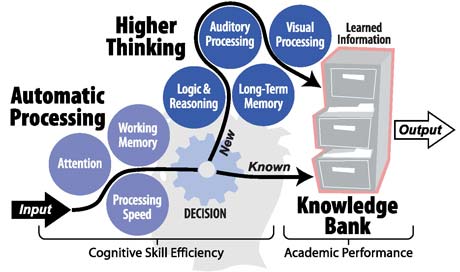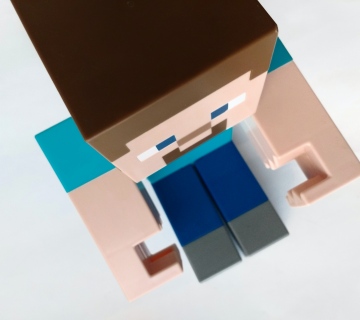Quite recently there was some advertisement on the television where the mother was seen being bombarded with questions by her little child. Though she was clueless about what the answers could be, she was happy that her child was curious, inquisitive and was asking her questions. That was clear of one thing. The child was thinking and the questions where a part of the child’s trial to know the world around. This is a clear sign of proper development of cognitive skills in children; the ability to ask questions and seek answers, try to find logic and reason behind the happenings in the world around them.
But if you are a parent who is concerned because your child is just the opposite, then there might be some problem in the development of proper cognitive skills in your child. That is the reason your child is not curious and does not seek answers. The brain has not developed at par with the age and if not treated at the right time, then this would have serious implications in the future. Parents always have a definite role to play in the development of cognitive skills in children, but at times you might have to consider some professional guidance.

Professional guidance for development of cognitive skills in children in children is now provided by many training centres. These are not tuition centres where your child would be provided assistance in any subject. Mind it that your child does not have any speech disorder or is not shy to ask questions. What your child might be lacking is the ability to think and without thinking no learning takes place properly. Learning can only be complete if the brain accepts the information, analyses it, processes it and then retains and recall its. All these functions are inter-related and are the outcome of proper cognitive functioning.
Training centres aiming towards complete development of cognitive skills in children is a boon for all those parents who have children suffering from improper cognitive functioning. These special training centres aims at treating each child individually as no two children are likely to show the same kind of difficulty. If one might have problem with focusing, then another might be suffering from inattentiveness. Each child is studied separately so that the training modules can be designed accordingly. Typically, such training modules focus on helping children achieve the following goals:
- Have good focus and attention
- Grasp and process information faster
- Be careful and observant
- Have good reasoning and judgement
- Retain and remember information
- Form connections between ideas and more

Since, parents too have a positive role to play in proper development of cognitive skills in children; such training centres also include the parents be a part in the learning process. They arrange for parents workshop so that the parents are able to:
(i) Understand the application of cognitive skills and its importance to their children’s mental capacity and performance
(ii) Be able to relate daily situations to cognitive functions and skills
(iii) Be able to utilise resources to help improve and train their child’s fundamental cognitive abilities
Hence, it is a learning process both for the parent and the child. Realise that your child is not dull but needs some extra help to become ready to face all the challenges that the world will throw at them. You are just giving them a shove up to a secured future.
Author Bio
Richard Bradford has been associated with training and development for children with under developed cognitive skills for long. His article talks about his experiences and focuses the importance of proper development of cognitive skills in children at the right time.



